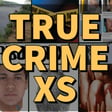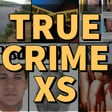
Season Five Home for the Holidays 19
In Today’s Episode, we put together our Home for the Holiday cases.
This podcast was made possible by www.labrottiecreations.com Check out their merchandise and specifically their fun pop pet art custom pieces made from photos of your very own pets. Use the promo code CRIMEXS for 20% off a fun, brightly colored, happy piece of art of your own pet at their site.
Music in this episode was licensed for True Crime XS by slip.fm. The song is “No Scars”.
You can reach us at our website truecrimexs.com and you can leave us a voice message at 252-365-5593. Find us most anywhere with @truecrimexs
Thanks for listening. Please like and subscribe if you want to hear more and you can come over to patreon.com/truecrimexs and check out what we’ve got going on there if you’d like to donate to fund future True Crime XS road trip investigations and FOIA requests. We also have some merchandise up at Teepublic http://tee.pub/lic/mZUXW1MOYxM
Sources:
Various News Sources Mentioned by Name

